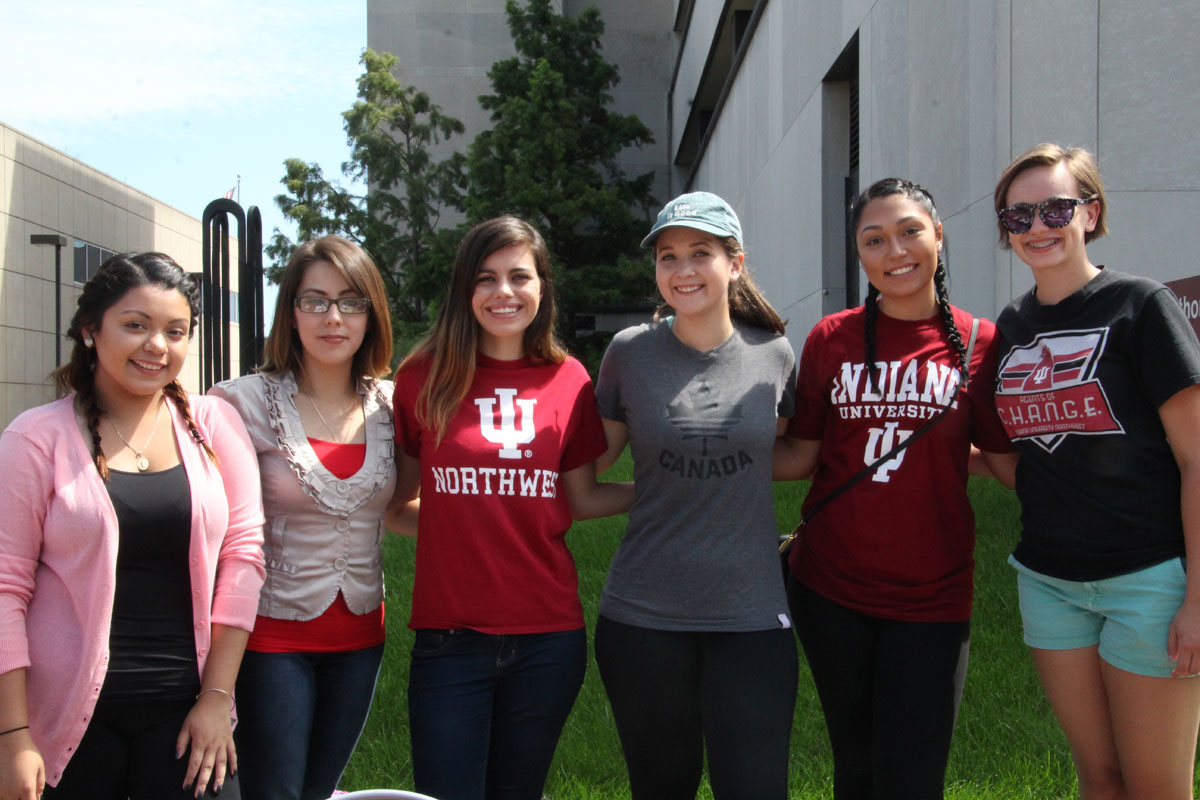Back to School season is a much different experience when you are headed to college. If you are a student at Indiana University Northwest the return to campus is made that much more exciting by the administration in the Student Activities Department. Every year they organize two weeks of Welcome Back events to make their students more comfortable.
One of the most important days of the series is the Club Sign Up expo. The rest of the week is packed with BBQs, blow up obstacle courses, and even a zip line, but it is at the expo that each student finds their niche of the University.
“With us being a very small commuter campus,” said the Habitat for Humanities Club President Ishani Sharna, “a lot of students just come to school, go to their classes, and leave. When they’re involved in extracurriculars, not only do they get that glimpse of what student life is, they also get culturally enriched with the different ethnicities that we have on campus. They get to interact with different people that maybe they wouldn’t have before because the people in clubs aren’t just from one region of study. Everyone gets to interact with everyone.”
Sharna is also the Co-President of the Asian American Student Association. Her clubs bring students of different educational backgrounds together to learn about the region and to help people in it.
Many of the other organizations and clubs of IUN do the same thing. Philanthropy is a growing culture in our society and it is not exclusive. The Student Government organization helps its students. The Love Your Melon club sells hats to raise money and awareness for people suffering the symptoms of cancer treatment.
Natasha Van Gilder was running a booth to market the Women’s and Gender Studies programs at the University. The group does an annual Clothesline Project to bring awareness to violence of all kinds. Each participant decorates a t-shirt, its base color a representation of a different type of violence or abuse, to signify their stance.
The Director of the program also wanted to make sure new students knew where to find the department.
“It’s a room not many people know about,” said Van Gilder. “[We] want to get it out there that there is a place here on campus, it’s called the Women’s Center, it’s in Savanna 207. It’s a safe zone for anyone on campus, it doesn’t have to be a woman. It’s for anyone to come if they ever need a place to get away.”
Each club and organization had their own unique trait to display at their booth. The expo was set up between the Admissions and Savanna buildings, so that students would see it between classes. Students wanting a snack were invited to try free fried oreos, or to step up to any of a dozen booths dedicated to a field that interested them. Most gave away candy with their information.
The Director of Student Activities, Scott Fulk, said, “We want them to feel like they’ve made the right choice, that this is the right place for them. We want them to interact with other students and make friends. We want them to get involved with clubs and organizations or athletics because if they do, the chances are likely that they will continue here until they graduate.”
Fulk himself was a new student at Indiana University Northwest in 1989. He earned two undergraduate degrees and one Master’s at the commuter campus. Fulk said it is about feeling connected.
“If they come here and they don’t feel connected to the campus… they won’t feel like there’s a place for them. They’re more likely to drop out.”
Placement Testing Coordinator Colin Czilli agreed with Fulk’s assessment. “Getting students connected with the campus is crucial to keeping them here. [We’re] showing them we have what any other campus would have.”
Everyone has their own reasons for picking a specific club or organization. Whether it is an interest in Anthropology or a passion for helping your neighbors, IUN has something for everyone.
One reason for joining any group at all is universal: solidarity. Knowing there is a place you can go and people you can count on is vital for every student’s stability.
Czilli said, “It benefits your education tremendously. It gets you to know other people, and know where to turn when you’re having trouble with something. It really helps students to get a better understanding of not only what we offer on campus, but what the campus can do for them.”



